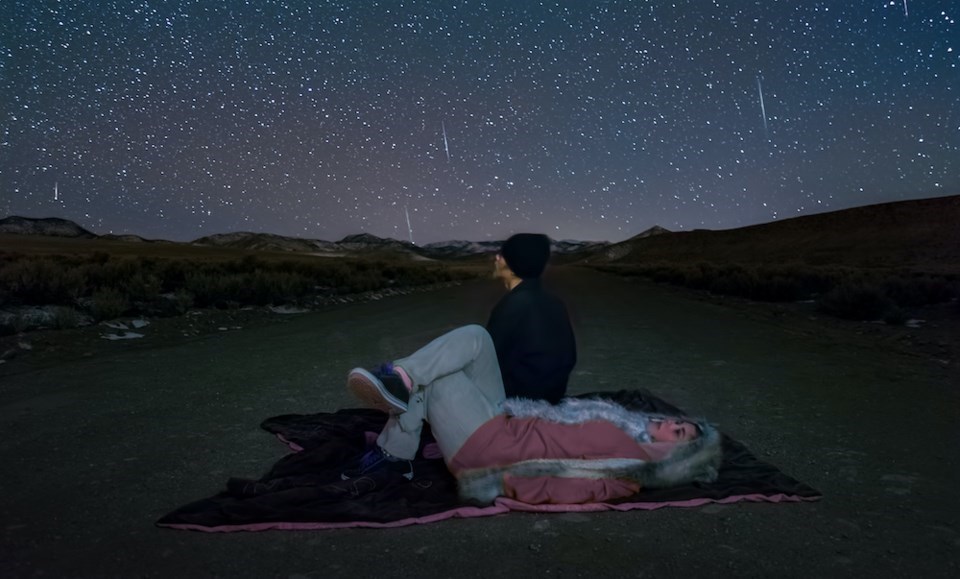Metro Vancouverites looking to stargaze in the upcoming months will want to mark their calendars for an awe-inspiring meteor shower this spring.
This year's Lyrid meteor shower may produce an impressive display in local skies at its peak, offering near-perfectly dark conditions for optimal viewing, according to Space.com.
The Lyrid meteor shower is one of the oldest recorded meteor showers and is created by the debris of Comet Thatcher, which is expected to be visible from Earth in 2276.
Former H.R. MacMillan Space Centre Astronomer Rachel Wang told V.I.A. in a previous interview that locals can expect to see "10 to 15 meteors (in a dark sky, with good seeing conditions)."
While locals won't see as many shooting stars as they would during the famously productive Perseid shower -- which can see numbers as high as 100 meteors per hour -- they may be able to see "fireballs."
The adds that the Lyrids usually lack persistent trains, but they can produce "fireballs." A fireball "is another term for a very bright meteor, generally brighter than magnitude -4, which is about the same magnitude of the planet Venus as seen in the morning or evening sky."
The Lyrid shower takes place between April 16 and April 25 and will peak on the night of April 22.
Lyrid meteor shower hunting tips in Metro Vancouver for 2023
To fully enjoy the spectacle, here are a few tips for meteor hunting:
- If possible, head away from city lights, which make it hard to see fainter meteors. To increase your chances of seeing shooting stars, set out in search of dark skies in the countryside. The Royal Astronomical Society of Canada provides some dark sky locations .
- You can also use the and check under the "seeing conditions before I head out to observe" section to find out how clear the display will be.
- If you need to use a flashlight, place a red filter over the bulb (a red balloon will do in a bind). White light is very blinding and may affect your night vision.
- Dress warmly and wear multiple layers. Bring blankets.
- Sit back and relax on a reclining chair or lie down on a blanket. Not only is it much more comfortable to observe the stars lying down, but you'll also see more that way.
- Pack a thermos of hot chocolate or coffee—it will come in handy if you start to drift off or get a little chilly.
- Be patient. It might take a while before you see your first shooting star. Don't be quick to give up.




